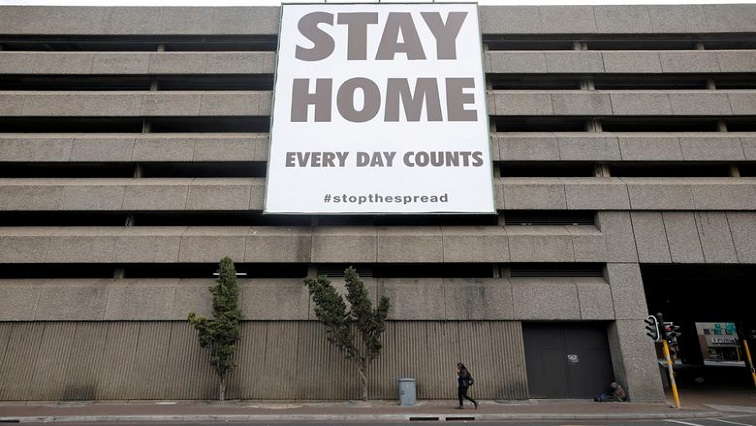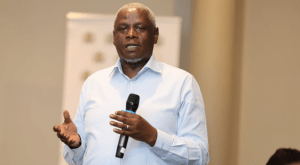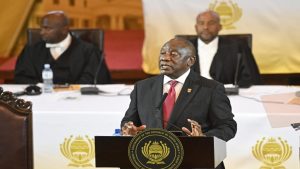Freedom Front Plus (FF+) leader Pieter Groenewald says further lockdowns are not necessary as the country marks one year since the first hard lockdown to counter the spread of the coronavirus.
South Africa in 2020 endured one of the strictest lockdowns in the world amid concern about the impact of COVID-19, especially on poor people living in densely populated areas.
There are now concerns the government will increase the lockdown levels again amid fears of a third wave of the virus over Easter and into winter.
Groenewald says the government could have done better.
“We are now one year in a State of Disaster where certain lockdown rules are applied. A year that can be remembers as a year where the government misused its powers, where the government’s incompetence has been exposed and where certain regulations were made which were actually irrational, nonsensical and where the human rights of the people of South Africa have been violated. Everybody agreed then when we started, a total 21-day lockdown was necessary to flatten the curve and to allow the health service to prepare for the COVID-19 patients that will come to hospitals. That is gone and is not necessary to continue with any lockdowns even in respect of what level we are.”
The economy shrunk by over 7% in 2020 as shops, cinemas, tourism venues and other business were forced to close during the hard lockdowns.
One year into lockdown, BLSA’s report on low rates of investment in infrastructure:
Lockdown impact on NPOs
The year-long lockdown has had a detrimental effects on non-profit organisations countrywide, as many depend on donor funding to survive. Some care for vulnerable children, and have not been able to hold fundraising events, due to lockdown restrictions.
This has had a huge impact on their viability. The Abraham Kriel Children’s home in in Potchefstroom is home to 230 children between the ages of two and nineteen. The Home says, the pandemic did not only affect their finances, but the children also had a hard time adjusting.
Childcare supervisor, Alec Votyeka, says it was difficult for the children to adjust to lockdown.
“It was a bit difficult. They couldn’t even go out, outside the yard, it was a bit difficult. And in terms of sports, our kids are more active in sports in different schools, they’re very much active. But now it was a bit difficult for them, they couldn’t do anything. Even here, whenever they come, because we make sure that we collect them group by group, we didn’t get them all. We get the first group, we quarantine them for couple of days, if we see that they don’t have signs of COVID, then we place them in different houses.”
Lockdown effect on non-profit organisations countrywide:
Effect on schooling system
The staggered schooling system has also taken getting used to, as the staff now work even longer hours, as there are always children at the home that need looking after.
Public Relations Manager, Marne Coetzee, says children had to adjust to rotation of school hours.
“Our kids rotated their school hours. So some would go on Mondays and Wednesdays and others would go on like Tuesdays and Thursdays; which was a challenge for childcare workers since they’re used to the mornings all the kids are at school. Which means they worked longer hours since some of the kids are at home and some are at school since they’re in different grades. That has impacted them quite a bit since they’re not used to the changing schedules of the kids. But they have adjusted with the good support structure. We’ve ensured that they can cope to their full ability.”
One year since South Africa went into lockdown:
– Additional reporting by Keadimilwe Moalusi.






